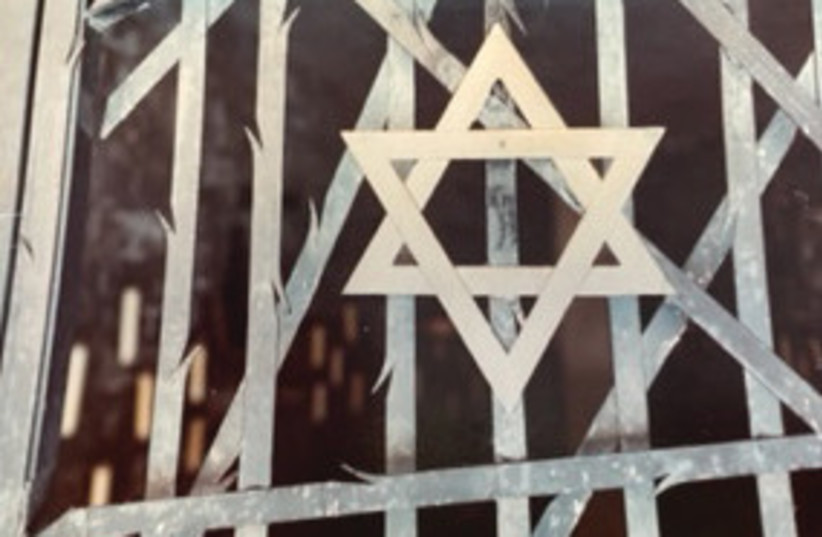What may not be obvious to most people is that safety and security is not something that is ever taken for granted by Jewish institutions. Spikes in antisemitism sometimes make the news, but institutions must worry about the safety and security of their employees and visitors every single day.
From 2015 to 2019 I was employed at a synagogue in upstate New York. It was not my first job, full-time position, or time in an office. However, it was the first position I held where we had to run emergency and active shooter drills on a regular basis. It was the first place I worked where emergency buttons were located around the premises, in case of danger, and would automatically contact police if engaged. Certain offices had bullet-resistant glass. During fire drills, we were instructed to check the parking lot before exiting, in case the alarm had been pulled specifically to get us out of the building and into danger rather than out of it.
None of these safety measures were put in place because of our location or a company history with crime or violence. They were only implemented because the institution was a Jewish one.
If you have ever tried to visit a synagogue abroad it is often much more complicated than simply showing up or buying a ticket. Often you must schedule a visit long in advance. Sometimes you are asked to prove your intentions and your background, with a letter from an official or clergy member.
While walking the Royal Mile in Edinburgh, Scotland, I was able to step inside St. Giles Cathedral simply because I was walking past. In Oslo, Norway it was only walking past that allowed me to see the Oslo Synagogue at all. And, merely walking by, I was approached by a security guard who wanted to know what I was doing there. I was not surprised to be approached, and for once it was useful to have a Star of David around my neck. But this difference is constant, and while antisemitism may be more visible now, it never disappeared. It was never not a problem.

American Jews are lucky to not encounter antisemitism regularly
Many Jews in America are lucky, not to encounter antisemitism or the dangers it poses on a regular basis. But that does not mean that antisemitism was ever not a worry. Every year in the fall during the Jewish High Holy Days synagogues across the country hire security to guard the entrances to their religious facilities because of the threat of antisemitic violence. This is a normal part of the holiday for Jews everywhere in the United States.
In recent years many institutions have taken to hiring security for any service or event, including days when religious school is in session. It’s only in moments where greater threats raise their ugly heads, as was the case during the hostage situation at Congregation Beth Israel in Colleyville, TX, or after the sentencing of the shooter from The Tree of Life Synagogue attack, that I even consider that this “normal” is, in itself, a problem.
In the wake of such events synagogues and Jewish institutions across the country add security measures and hold in-house meetings about current security protocols, just as my office did between 2015 and 2019 whenever the extremes of antisemitism hit the news. These days I find myself having to scour trending hashtags and social media stories to be prepared for possible upticks in antisemitic violence in the real world.
The Anti-Defamation League linked over 30 in-person acts of antisemitism directly to the antisemitic declarations Kanye West made on social media back in 2022. Words have consequences. This is why, even when others can rest easy, the Jewish community must always be vigilant when it comes to the presence of antisemitic statements as well as actions.
Even if antisemitism does not make the news there is never a moment that I, or the Jewish institutions I have worked for or interact with, are allowed to let our guard down. Just as I must always be aware of my surroundings and know where my keys are as a woman when I walk alone, so too there are parts of my everyday life I must always be aware of when interacting in spaces as a Jew, whether those spaces are Jewish or not, whether they are in-person or online. This may be normal for me, but that does not mean that it should be.
The writer is a Washington, DC- based writer and social media manager.
